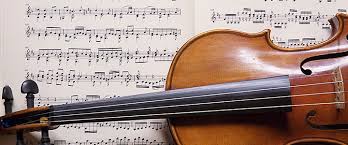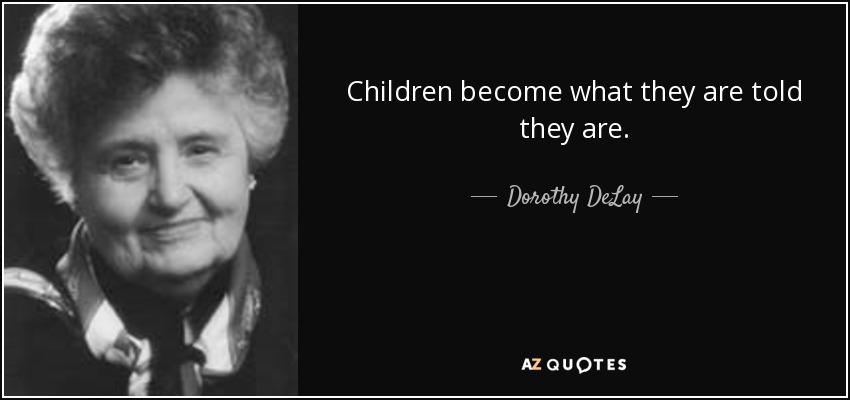
Motivation
Motivation
I quite often discuss with colleagues teaching matters and I have come to the conclusion that the most challenging matter for all teachers is how to keep their students motivated. In this article I make some suggestions that I believe are helpful in dealing with the issue of motivation.
First, it is important to outline the possible reasons that could motivate a child to start learning a musical instrument and why some students might lose their enthusiasm on the way. One reason might be that the child has seen a soloist on the TV or in a live concert and has been awed by their playing and their stage presence. Another reason might be that the child watched an orchestral concert, was impressed by the size of the orchestra and was attracted to the idea of playing in a big ensemble alongside other musicians. A third reason might be that they could finally be able to play the music that they like. A fourth reason might be that some of their friends started learning an instrument and they want to do the same. Finally, a fifth reason might be that their parents decided to enroll them on an instrumental learning programme, without the child showing any particular interest in learning music. Whatever the case, most children do not realize that hard work is required for learning a musical instrument. When, in the first couple of lessons, they realize the difficulty of the task, they then feel overwhelmed and demotivated. This is particularly the case with a string instrument where the production of quality sound can be very tricky. Another period when a student can feel demotivated is towards the completion of music studies in violin performance, when they realize the tough competition and struggles of the music profession.
Some ways that teachers could deal with lack of motivation are the following: First, explore with their students the concept of ‘Possible Selves’. A possible self represents someone’s future self-image of ‘what they wish to become or what they are afraid of becoming’. The clearer the self-image in one’s mind, the more chances to become a reality.
Leonidas Kavakos has mentioned in various interviews that a turning point in his student life was a tour that he made as a member of the European Union Youth Orchestra. Traveling and playing around the world became a life pursue for him and thus, he practiced even more hours and more effectively in order to achieve it. In other words, he created a possible self that motivated him to work harder and to set specific goals that led him to an international career. It is essential that all teachers foster the creation of positive possible selves in their students. They can achieve that by telling stories about great violinists with the aim to inspire their students. Furthermore, they should encourage students at more advanced grades to read the biographies of great violinists as well as to watch interviews with these violinists on YouTube.
If you want to read more about the theory of possible selves, I strongly suggest the book Contexts for Music Learning and Participation. Developing and Sustaining Musical Possible Selves.
Another way a teacher can keep his students motivated is to deliver high-quality lessons. By a ‘high-quality lesson’ I describe three characteristics of teaching:
- A deep knowledge of instrumental technique and of general music. Teachers who can provide answers to their students’ technical problems and interpretation dilemmas, make their students feel more confident.
- Passion for teaching. The passion and excitement of a teacher can strongly motivate a student.
- Lessons planned on the basis of mid-term and long-term goals. When a lesson is organized around many small goals and the student attains them, then these small achievements encourage the students to continue to work harder. These goals can be the learning of a new technique or a new piece of music, he performance of a small recital or the participation in a violin competition. Thus, it is crucial for every teacher to continuously enrich their knowledge not only on subjects regarding their instrument but generally on effective music teaching and learning and on music psychology. You can find book titles on these subjects in ‘My library’ section at the right side of my homepage.
A third method for a teacher to keep his students motivated is to create a community within his class. He can achieve that by organizing group lessons in the style of the Suzuki method. Furthermore, he can organize performance classes where students play to their peers and then the whole class discusses the performance.
I would like to finish this article by talking about the relationship between teacher and student. There has been a time when a violin teacher was allowed to be extremely demanding, offensive and unfortunately, sometimes also abusive. In our days, there is the opposite approach to learning, that of creating a joyful lesson and where the teaching approach is non-judgmental. Although I do not agree with the old way of teaching, I also believe that the new way is not very effective in the long run. I believe that the teacher should respect the student and understand their needs. Similarly, the students should accept that receiving constructive criticism from their teacher is equally important to receiving praise for what they achieve, in order for them to progress in violin playing.
What are your methods in keeping your students motivated?
I would love to receive your messages on this topic.



